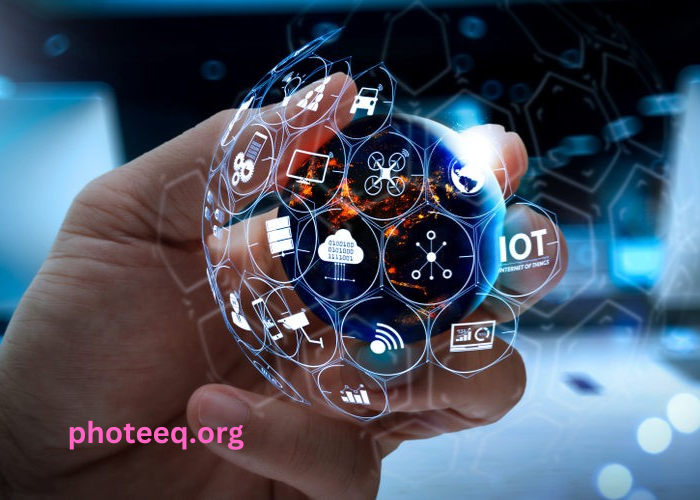
In today’s fast-paced digital world, businesses are constantly evolving to adapt to technological advancements. Emerging technologies are driving this transformation by enhancing productivity, improving customer experiences, and streamlining operations. From Artificial Intelligence (AI) to blockchain, these innovations are redefining how businesses function across industries. This article explores the top five emerging technologies that are transforming businesses, helping organizations stay competitive in an increasingly dynamic market.
1. Artificial Intelligence and Machine Learning
Transforming Decision-Making
AI and Machine Learning (ML) are revolutionizing businesses by enabling data-driven decision-making. AI systems analyze vast amounts of data to uncover insights that were previously inaccessible, helping organizations make faster, smarter decisions. Predictive analytics, for instance, allows businesses to foresee customer demands and trends.
Automating Processes
AI automates repetitive tasks, reducing human error and freeing up valuable resources. Industries such as healthcare, retail, and manufacturing have embraced AI-powered systems for inventory management, diagnostics, and customer service, resulting in improved efficiency.
Enhancing Customer Experience
AI-powered chatbots and virtual assistants have redefined customer service by providing real-time responses and personalized experiences. Businesses are now leveraging AI to offer tailored product recommendations, increasing customer satisfaction and loyalty.
2. Internet of Things (IoT)
Connecting Devices and Systems
The Internet of Things (IoT) enables businesses to connect physical devices and systems via the internet. From smart sensors in factories to wearable devices in healthcare, IoT has improved operational efficiency and reduced downtime.
Real-Time Data Monitoring
IoT allows organizations to collect and analyze real-time data. For example, logistics companies use IoT-enabled tracking systems to monitor shipments, ensuring timely deliveries.
Enhancing Automation
IoT devices work alongside automation systems to streamline processes. In manufacturing, IoT-powered smart factories use sensors to predict maintenance needs, preventing costly breakdowns.
3. Blockchain Technology
Ensuring Transparency and Security
Blockchain has disrupted traditional business operations by offering decentralized, tamper-proof digital ledgers. This technology ensures secure and transparent transactions, making it particularly valuable for industries such as finance, healthcare, and supply chain management.
Revolutionizing Financial Transactions
Blockchain enables fast, secure, and low-cost financial transactions through cryptocurrencies and smart contracts. Businesses benefit from reduced transaction fees and increased trust among stakeholders.
Improving Supply Chain Management
Blockchain enhances traceability in supply chain processes. Companies can track goods at every stage, ensuring transparency and accountability.
4. 5G Technology
Revolutionizing Connectivity
5G technology is set to transform businesses by providing ultra-fast internet connectivity with minimal latency. With 5G, businesses can run real-time applications, such as video conferencing, without delays or disruptions.
Enabling Smart Infrastructure
Industries are leveraging 5G to enable smart cities and connected environments. Businesses are adopting 5G-powered IoT solutions for improved communication and automation.
Supporting Remote Work
The rise of remote work requires robust internet connectivity. 5G empowers businesses with seamless communication, supporting hybrid work environments.
5. Augmented Reality (AR) and Virtual Reality (VR)
Enhancing Customer Engagement
Augmented Reality (AR) and Virtual Reality (VR) provide immersive experiences that engage customers. Retailers are using AR to enable virtual product try-ons, while VR allows businesses to offer interactive tours of properties or facilities.
Transforming Training and Development
AR and VR have transformed employee training programs. Organizations use VR simulations to train workers in a risk-free environment, especially in fields like healthcare and aviation.
Driving Innovation in Marketing
Businesses leverage AR and VR for innovative marketing campaigns. These technologies enable brands to create immersive advertisements, capturing customer attention and enhancing brand recall.
Conclusion
Emerging technologies are revolutionizing businesses, driving innovation, efficiency, and growth across industries. AI, IoT, blockchain, 5G, and AR/VR are at the forefront of this transformation, empowering organizations to stay competitive in an evolving digital landscape. By adopting these technologies, businesses can streamline operations, enhance customer experiences, and unlock new opportunities for success. The future belongs to organizations that embrace these advancements and leverage them strategically to thrive in the digital age.






